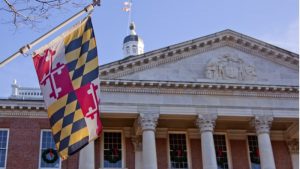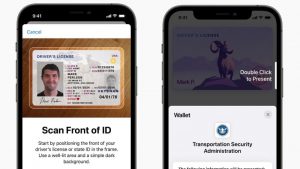As cyberattacks against state and local governments rise, the state of Maryland has hosted a statewide cybersecurity tabletop exercise. The exercise was hosted by the Maryland Department of Emergency Management (MDEM), in coordination with all cabinet-level agencies, and enabled critical partners to discuss plans, policies, and procedures in order to identify and address potential vulnerabilities or issues in preparation for a cybersecurity incident.
Maryland Gov. Larry Hogan announced that applications are now open for $95 million in funding to expand high-speed internet access across the state. The funding will be part of the Connect Maryland Network Infrastructure Grant Program. The Connect Maryland initiative is designed to expand the state’s investment in broadband and help close the digital divide.
Maryland Gov. Larry Hogan has announced more than $127.6 million in broadband grants for local jurisdictions, Internet Service Providers, and community organizations, as well as education-specific grants that will expand infrastructure and provide wireless devices and equipment to Maryland’s K-12 students.
Maryland is now the second state to offer residents the option of storing their digital driver’s license or state ID card in their Apple Wallet, following Arizona.
Maryland Gov. Larry Hogan has submitted a $101.25 million supplemental budget to the General Assembly to expand the state’s cyber readiness and workforce initiative.
What does technology really cost – and perhaps an even more critical question – how do you fund its acquisition?
The state of Maryland is launching Connect Maryland, a program that will infuse $400 million in broadband investment to address the digital divide, Gov. Larry Hogan announced.
Eight states – Arizona, Connecticut, Georgia, Iowa, Kentucky, Maryland, Oklahoma, and Utah – will offer residents digital driver’s licenses for Apple devices.
The state of Maryland will award $29,472,131 in grant funding to expand broadband internet access for over 12,000 households in 18 counties, Gov. Larry Hogan announced.
Like other states across the country, Maryland needs to reduce the number of COVID-19 infections to flatten the curve. Contact tracing—the process of reaching out to people who tested positive for the virus and alerting people who have been in contact with them—is an essential part of the state’s strategy.





